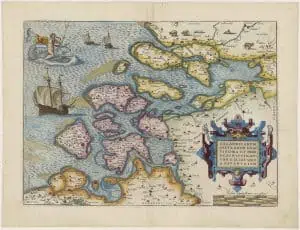Back to:
Why these 11 choices
See also:
Giuseppe Verdi
Rigoletto Opera
La donna è mobile
Francesco Maria Piave (18 May 1810 – 5 March 1876) was an
Italian opera librettist who was born in Murano in the lagoon of Venice,
during the brief Napoleonic Kingdom of Italy.
 Francesco Maria Piave is an Italian librettist. The son of a glass-maker, he studied for the church before obtaining employment as a proofreader. On the failure of his father’s business he went to Rome, where he joined a literary circle that included the librettist Jacopo Ferretti, with whom he remained on close terms. He returned to his old position in Venice in 1838, and in 1842 wrote a libretto, Don Marzio, for Samuel Levi, but it was not performed. He also provided the third act of Pacini’s Il duca d’Alba, which Giovanni Peruzzini had been prevented by illness from completing.
Francesco Maria Piave is an Italian librettist. The son of a glass-maker, he studied for the church before obtaining employment as a proofreader. On the failure of his father’s business he went to Rome, where he joined a literary circle that included the librettist Jacopo Ferretti, with whom he remained on close terms. He returned to his old position in Venice in 1838, and in 1842 wrote a libretto, Don Marzio, for Samuel Levi, but it was not performed. He also provided the third act of Pacini’s Il duca d’Alba, which Giovanni Peruzzini had been prevented by illness from completing.
The autograph survives, heavily corrected by the composer. Piave was recommended to Verdi by Count Mocenigo, and there began a long and successful collaboration from Ernani (1844) to La forza del destino (1862). Following a period as poet and stage director at La Fenice, Piave moved in 1859 to Milan, where on Verdi’s recommendation he obtained the corresponding position at La Scala. On 5 December 1867, on the way to La Scala for a rehearsal, he suffered a stroke which deprived him of speech and movement; he lingered on for nine years in this condition, leaving unfinished a libretto (Vico Bentivoglio) for Ponchielli.
Verdi was initially unsure of Piave’s abilities and always harried him unmercifully, often having his work revised by others; Piave rewarded him with doglike devotion, and the two remained on terms of sincere friendship. He was frequently summoned to Verdi’s side, and they worked together on librettos. Both Verdi and his wife came generously to Piave’s aid in his last years.
Throughout his career Piave wrote for many other composers, some well known like Pacini, but most of them insignificant. There is, however, a wide gulf between Piave’s Verdian and non-Verdian librettos. Most of the latter are of poor quality and, with the possible exception of Elisabetta di Valois (Antonio Buzzolla, 1850; a precursor of Don Carlos) and the extraordinary black comedy Crispino e la comare (Luigi and Federico Ricci, 1850), might almost have come from another hand: both dramatic tension and crispness of versification are absent.
Verdi, however, used to give Piave explicit instructions on what he wanted, and often wrote out in prose the passages he needed to have versified. Piave had a wide vocabulary and a facile pen, and an uncanny ability for turning Verdi’s drafts into verse with an economy of words that satisfied Verdi’s insistence on brevity and provided him with the striking, illuminating expressions he sought. It was Piave’s willingness to meet Verdi’s detailed requirements which provided the basis of their work together, and it is on this partnership that his reputation as a librettist must rest.
Librettos by Piave
Year Title Composer Notes
- 1842 Il duca d’Alba Giovanni Pacini libretto also by Giovanni Peruzzini
- 1844 Ernani Giuseppe Verdi
- 1844 I due Foscari Giuseppe Verdi
- 1845 Lorenzino de’ Medici (opera) Giovanni Pacini
- 1846 Attila Giuseppe Verdi
- 1846 Estella di Murcia Federico Ricci
- 1847 Griselda Federico Ricci
- 1847 Macbeth Giuseppe Verdi
- 1847 Tutti amanti Carlo Romani
- 1848 Allan Cameron Giovanni Pacini
- 1848 Giovanna di Fiandra Carlo Boniforti
- 1848 Il Corsaro Giuseppe Verdi
- 1848 La Schiava Saracena Saverio Mercadante
- 1850 Crispino e la comare Luigi Ricci and Federico Ricci
- 1850 Elisabetta di Valois Antonio Buzzolla
- 1850 Stiffelio Giuseppe Verdi
- 1851 La Sposa di Murçia Andrea Casalini
- 1851 Rigoletto Giuseppe Verdi
- 1853 Baschina Federico Guglielmo De Liguoro
- 1853 La Donna delle isole Giovanni Pacini
- 1853 La Prigioniera Carlo Ercole Bosoni
- 1853 La Traviata Giuseppe Verdi
- 1854 Margherita di Borgogna Francesco Petrocini
- 1854 Pittore e Duca Michael William Balfe
- 1856 I Fidanzati (opera) Achille Peri
- 1857 Simon Boccanegra Giuseppe Verdi
- 1857 Vittore Pisani Achille Peri
- 1859 Margherita la mendicante Gaetano Braga
- 1860 La Biscaglina Samuele Levi
- 1861 Guglielmo Shakspeare Tomaso Benvenuti
- 1862 La Forza del Destino Giuseppe Verdi
- 1862 Mormile Gaetano Braga
- 1862 Rienzi Achille Peri
- 1865 La Duchessa di Guisa Paolo Serrao
- 1865 Rebecca Bartolomeo Pisani
- 1867 Berta di Varnol Giovanni Pacini
- 1867 Don Diego de Mendoza Giovanni Pacini
- 1868 La Tombola Antonio Cagnoni
- 1872 Olema Carlo Pedrotti
Source photo:
Wikipedia commons, this image (or other media file) is in the public domain because its copyright has expired.


